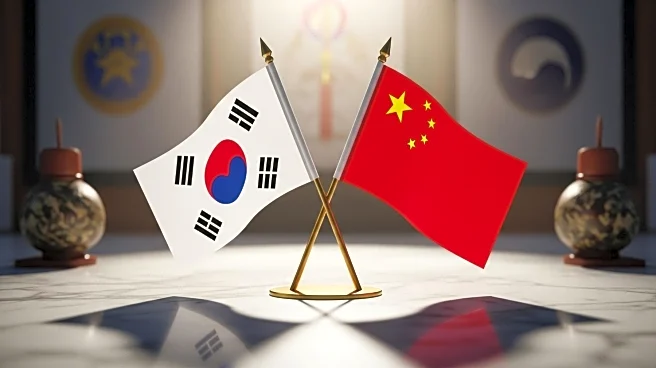What's Happening?
North Korea's leader, Kim Jong-un, is set to visit Beijing to attend a military parade on September 3, commemorating the end of the Sino-Japanese War and World War II. This visit comes as Kim is being courted by the United States and South Korea for dialogue. The parade, hosted by President Xi Jinping of China, will also see the attendance of President Vladimir Putin of Russia, potentially allowing Kim to hold summit meetings with both leaders. This marks Kim's first trip to Beijing since January 2019, highlighting efforts to reinforce ties with China while expanding relations with Russia.
Why It's Important?
Kim Jong-un's participation in the Beijing military parade signifies North Korea's strategic move to strengthen alliances with China and Russia, two of its most crucial allies. This development could impact U.S. and South Korean diplomatic efforts to engage North Korea in dialogue, as Kim's focus appears to be on solidifying relationships with neighboring powers. The event also underscores the geopolitical dynamics in Asia, with North Korea seeking to balance its reliance on China for trade while receiving military and economic support from Russia.
What's Next?
The attendance of Kim Jong-un at the Beijing parade may lead to further diplomatic engagements between North Korea, China, and Russia. Potential summit meetings with Xi Jinping and Vladimir Putin could result in agreements that bolster North Korea's position in the region. The U.S. and South Korea may need to reassess their strategies in engaging North Korea, considering its strengthened ties with China and Russia.
Beyond the Headlines
Kim Jong-un's visit to Beijing highlights the complex geopolitical landscape in Asia, where North Korea is maneuvering to maintain its sovereignty while leveraging relationships with powerful allies. This move could influence regional security dynamics and affect international efforts to address North Korea's nuclear ambitions.










